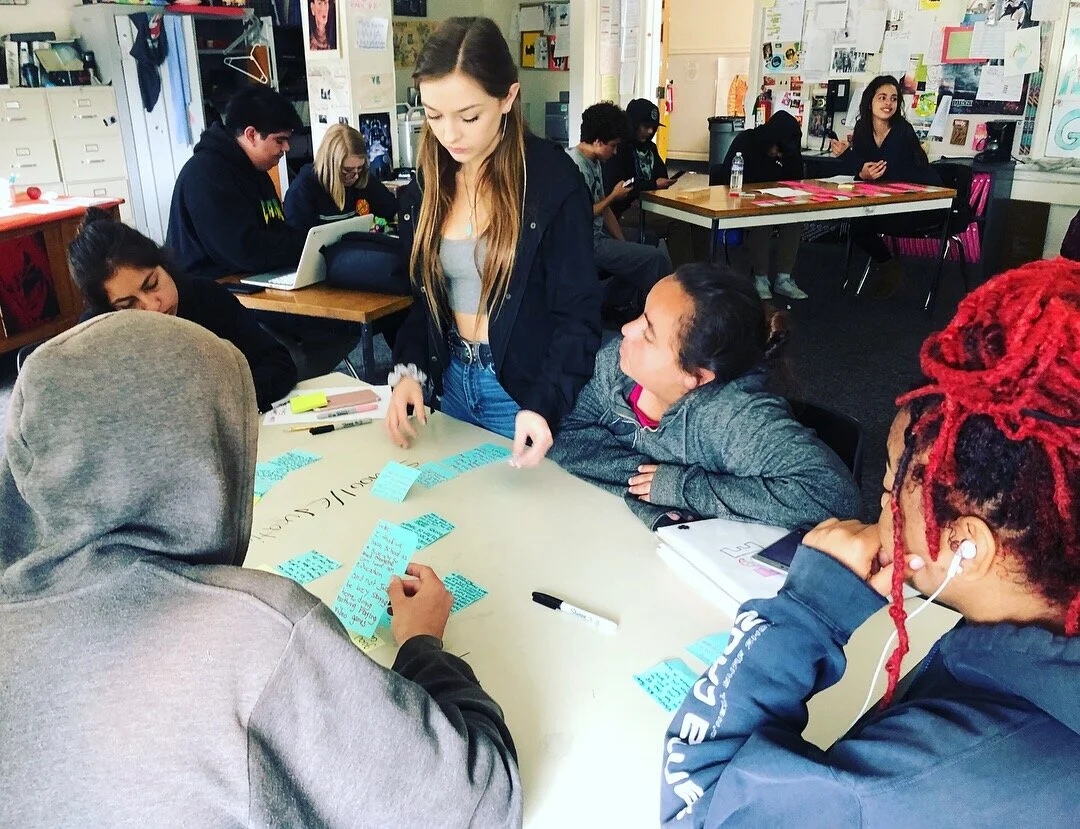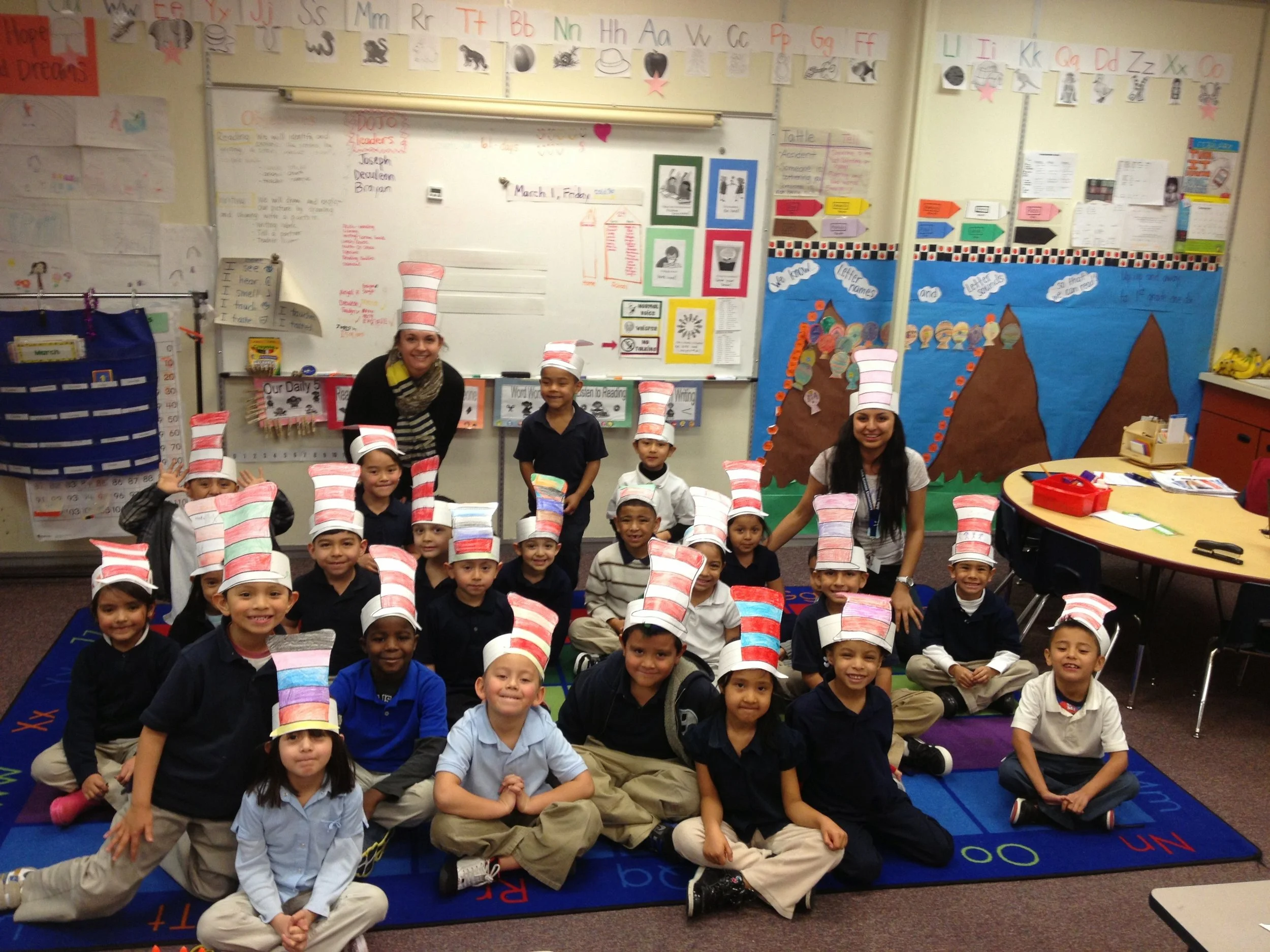We actually know a lot about how to foster both learning and community in our schools, and we just largely don’t do those things.
Read MoreSchool choice is not something we should be debating if we want to maintain a democratic society. School choice takes an inherently public good and frames it as a private good — and we all lose because of it.
Read MoreIn a democracy, creating a shared vision requires asking beautiful questions and inviting people from different walks of life to participate in a reflective process. In other words, it takes engaging directly in the practice of deliberative democracy. It requires a process, not a one-and-done solution or program.
Read MoreFostering flourishing is more like gardening than manufacturing or engineering.
Read MoreHere’s a curated list of a few kid-centered resources to check out if you haven’t already found your favorites.
Read MoreWe persistently act as though preparation for an unknown future is more important than living well and doing well now.
Read More“Schools are always creating community, whether we are intentional about it or not. If we are not intentional about the types of communities we want to create, then we end up with a King High School at the micro level — a school community in which it’s implicitly taught that some students are more worthy than others and that segregation is key towards to student success. At the macro-level we end up recreating institutions that perpetuate those values.”
Read MoreOver the past few weeks students in Santa Cruz have interviewed each other and adults in their school about what makes a good life and the role of school in society for our pilot school partnership #studentvoice project. Yesterday they identified themes from their interviews and presented to their peers. Read their interviews!
The project is a perfect example for this month's big shift: Outcomes to Practice.
It's who students practice being in school that will drive outcomes, not just creating better outcome metrics. Are students practicing creativity, curiosity, empathy, meaning making, and citizenship daily? If so, they will develop it. If not, unlikely.
We were so focused on outcomes, we forgot a single and powerful truth: who and how Emma practices being during the school day ultimately affects who she becomes. If we have student practice frustration, boredom, isolation, and immerse them in an environment that highlights their weaknesses then we should not be surprised when they disengage with school, becomes recalcitrant, and halt practicing activities that might lead to skill development.
If we want a child to be well and do well in the future, we need to provide an environment in which they can practice being well and doing well now.
Read MoreWe adore the idea of using Valentine's Day as a reminder to celebrate all the different kinds of love and moments of joy in our lives and the world.
This fits well with the big mindshift of the month: from Efficiency to Possibility: We need to move out of efficiency frames and into possibility frames when we design school practice and policy. Why? Because designing for efficiency is destroying all the joy and love in school.
We adore the idea of using Valentine's Day as a reminder to celebrate all the different kinds of love and moments of joy in our lives and the world.
This fits well with the big mindshift of the month: from Efficiency to Possibility: We need to move out of efficiency frames and into possibility frames when we design school practice and policy. Why? Because designing for efficiency is destroying all the joy and love in school.
"This is the point: we cannot engineer kindness, grit, empathy, or any other skill into students. We cannot just teach isolated lessons and expect them to one day know how to use them. As teachers, we must build environments in which these skills are practiced across the school day– because it is only through this authentic practice that students will actually learn the skills we know will help them thrive as individuals and work together as a community."
Read MoreWithout a concrete vision around the inherent value of diversity, the role that schools should play in developing a wide spectrum of learners, and the importance of fostering empathy in young citizens of a democracy - students with disabilities were largely excluded from the school community.
Read MoreWe adore the idea of using Valentine's Day as a reminder to celebrate all the different kinds of love and moments of joy in our lives and the world.
This fits well with the big mindshift of the month: from Efficiency to Possibility: We need to move out of efficiency frames and into possibility frames when we design school practice and policy. Why? Because designing for efficiency is destroying all the joy and love in school.
"...we are neglecting to recognize that it is how literacy is taught – the experience and practice of reading, writing, and communicating itself – not the literacy scores, that will matter for students’ abilities to make meaning, communicate with others, and grapple with complexity in the long-term."
Read MoreWe're starting the new year focusing on the first big shift in thinking required for real change in education: Symptoms to Systems. So much of our time in schooling and school reform is spent addressing symptomatic issues, while the real systems problems get ignored. A tell-tale sign that something is a systems issue is when symptoms are widespread and predictably patterned across different kinds of people and situations (e.g. anxiety and depression across many high-performing institutions, drop-outs in low-income institutions).
Read MoreA few years ago, I was the behavior specialist called in to work with a child. Kyle was 9, in third grade, and he was and academically inclined - already reading books meant for fifth graders. But he was totally disengaged from school.
Read MoreWelcome to our very first monthly newsletter! REENVISIONED has been steadily growing and we wanted a way to connect with all of you about what’s happening – and, of course, invite you to get involved!
At a time of incredible turmoil and change – in education and in society more broadly - work to create a positive vision is more important than ever.
As an energetic and optimistic 22-year old, I entered my Kindergarten classroom in Denver, Colorado with dreams for my students: that they would be empowered, fulfilled, and flourishing individuals. If I could teach them the knowledge, beliefs, and character that would help them create good lives and contribute to a more beautiful society, I would have succeeded as an educator. I never would have predicted that a short three years later I would wonder if I were actually doing more harm than good.
Read More

















